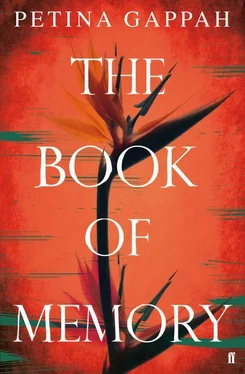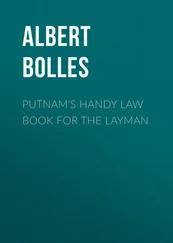I looked up, surprised. Lloyd had never been comfortable with guns.
He noticed my surprise and said, ‘Alexandra gave me a gun, but I sometimes forget that it is there.’ That conversation came back to me the night that Lloyd died.

I have replayed in my mind, over and over again, the events of that last Friday in November, my last day of freedom. I had woken up just after six to go for a run. I left the house through the kitchen. Mrs Harris lay in her basket next to the pantry. She raised her head and panted. I made a soothing sound and tickled her under her neck. Exhausted with the effort, she put her head down again and went back to sleep. I left the door open so that she could go out.
The rain had come down the night before. The ground was soft beneath my feet as I made my way down our lane and turned left into Umwinsidale Drive. I met no one in the first stage of my run. It was two hours before the road would be filled with the children of Umwinsidale’s domestic servants, chattering as they walked to their school in the Chishawasha Valley on the other side of Enterprise Road, and leaping out of the way when the Range Rovers and Jeeps of their parents’ masters zoomed past.
Only the birds kept me company. From the stud farm on Umwinsidale Drive, I heard the sound that I had missed the most in my absence, the sound of horses. At the intersection of the drive and Hazlemere Lane, I ran past three white women who were walking at a brisk pace. We said ‘Good morning’ as we passed each other.
On the first day that I had seen them, I saw in their faces the look of confusion that I often see on strangers. From a distance, I looked like I could be one of them, but seen closer, the difference became visible. They were used to me now — we had passed each other on the same spot every day since I had started running. It was customary for us now to exchange nods or greetings.
‘I promise you,’ said the woman in the middle, ‘I am absolutely the only one in Africa who does this.’
I smiled to myself as I ran on and my mind idled over her words. She was the only one in Africa who did what? Was she the only person in Africa who gave French pedicures to African poodles? The only person in Africa who made small scarves for bats? Who knitted mittens for kittens? Who made velvet gloves for monkeys’ paws? The only person in Africa who eats her peas with honey, who has done it all her life; it makes the peas taste funny but it keeps them on the knife?
The morning was right for running. The air was crisp and cool. I ran up Hazlemere Lane and rested there for a minute as I looked at the valley stretched below me. In the distance, a small herd of zebras from the private game park grazed in the morning mist.
I ran past the new houses that had come up in my absence, hideous promontories jutting out against the sky. I ran on, up the hill to the Compton-Jones’s place, then down again. By the time I ran back to Summer Madness forty minutes later, I was breathing hard. I did some stretches on the veranda. In my bathroom, I showered, careful to keep my face away from the rushing water, washing my hair with my eyes open.
Lloyd was up by the time I returned. From the kitchen came the smell of the coffee. As I walked to the kitchen, I sang along to the music that he was playing that morning, about becoming lovers, and marrying fortunes together.
He was sitting at the table, eating toast and marmalade with his coffee while he caught up with the news on his laptop. He said something about Obama and the election in America. I turned down the music, poured myself some coffee, and sat in the chair opposite him. I took a naartjie from the fruit bowl on the table, peeled it, and ate it with my coffee. Mrs Harris moved from where she sat at Lloyd’s feet and came panting up to be patted. I ruffled her head and neck. She thumped her tail and nuzzled my hand.
‘You should eat more than that,’ Lloyd said after his morning greeting. ‘You are all skinny mabhonzo .’
It was the same discussion that we had had since my return.
He finished his toast and got up to go. ‘We may need another voucher for the Internet,’ he said.
‘I will pass through Sam Levy’s on my way back from the Archives,’ I said.
‘See you when you see me,’ he said.
He closed his laptop, shoved it into a bag that he slung over his shoulder, and left. Mrs Harris lifted her head and dropped it again. In the old days, she would have scampered after him, but it was all she could do to lift up her head and watch him out. Her head between her paws, she went back to sleep. In the background, I heard his car making its way down the lane to join Umwinsidale Drive.
As I got up to make toast, I saw that he had left his phone behind. Lloyd was so absent-minded that I had sometimes thought that his household, such as it was, existed for no other purpose but to find the things that he lost.
I hummed with the music as I chuckled at the headline stories on Gawker, read the news story that Lloyd had talked about on the American election, brushed my teeth and drove for the Archives. I would take him his phone around lunchtime, I decided, because the university was just a few minutes from the Archives.
I stopped for a newspaper at the intersection of Enterprise and Glenara. A vendor in an Arsenal shirt ran into oncoming traffic, shouting a triumph as a speeding van almost hit him. The lights changed as he reached my window. He threw the paper into my car, and then, like a runner stretching for a baton from the team member ahead of him, ran alongside the car, his hand outstretched for the wad of notes that I handed him. I drove up the Enterprise bypass, round the roundabout, into Churchill and turned into the Archives.
I spent the rest of the morning going through photographs in the picture archives. I was curating an exhibition of photographs for display at the National Gallery. I selected my pictures: the first young woman to get a medical degree in Rhodesia, market women in Mbare in the fifties, colonial wagons pulled by a team of zebras, naked warriors from the 1896 rebellion hanging from trees, southern fruit in the Rhodesian bush.
At lunchtime, I drove to Sam Levy’s. At the intersection of Churchill and Borrowdale, nimble-footed young men thrust their wares towards me: flotation devices shaped like the Teletubbies, chargers, adapters, Springbok and All Blacks flags — South Africa and New Zealand had a rugby match that weekend. A man with dreadlocked hair and beard ran up to my car; the three national flags billowing behind him made him look like a demented Rastafarian.
When I first came back, Alexandra had encouraged me to buy a flag to hang in the car. It was the only way to get past the police roadblocks, she explained. ‘You’ll get less hassle that way, I promise you,’ she said. Like many whites under siege, she thought flying the flag from her car was a badge of patriotism, a visible sign that she was not a ‘detractor’.
Lloyd had mocked the talismanic effect of the flag. He used to joke that he would fly a Union Jack instead. If he could be sure that the police would know it, he would fly the old tricolor, he said. Alexandra had obviously not seen the funny side of this.
Lloyd was right; I had been amused to see that the focus of hatred on the nightly news was not the Rhodesians, but the British. According to this new history, the war had been fought not against a white minority regime that had opposed black rule to the extent of unilaterally declaring independence from British control, but against the British themselves.
I was even more amused to see that Alexandra and Lloyd had exchanged places. Lloyd, who had fought in the liberation struggle on the side of the black forces in favour of majority rule, could joke about the flag of Rhodesia, while Alexandra, whose husband and favourite brother had defended it, was anxious to show loyalty to the flag of Zimbabwe.
Читать дальше













